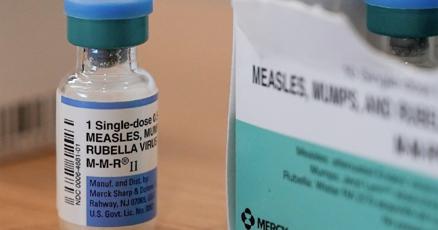The silent return of a once-controlled disease has health officials on high alert this week as Peel Public Health confirmed two new measles cases in the region, bringing renewed urgency to vaccination discussions across the Greater Toronto Area.
The affected individuals, who recently traveled internationally, are now in isolation while health authorities scramble to identify and contact anyone who may have been exposed. This marks a concerning development for a region that had previously maintained strong herd immunity against the highly contagious virus.
“What we’re seeing now reflects a troubling global trend of measles resurgence,” said Dr. Nicholas Baxter, infectious disease specialist at Toronto General Hospital. “When vaccination rates drop even slightly below the 95% threshold needed for community protection, we create openings for outbreaks like this one.”
Peel Public Health has issued exposure notices for several locations visited by the infected individuals before diagnosis, including Pearson International Airport’s Terminal 1 on March 12 between 4:00 PM and 7:30 PM, and the Trillium Health Partners Mississauga Hospital emergency department on March 13 from 9:30 AM until 8:45 PM.
The measles virus, which can remain airborne for up to two hours after an infected person leaves an area, causes symptoms including high fever, cough, runny nose, and a distinctive rash that appears 3-5 days after initial symptoms. Complications can include pneumonia, encephalitis, and in rare cases, death.
Health officials emphasize that the MMR vaccine remains extraordinarily effective at preventing transmission, with two doses providing 97% protection against infection. However, vaccination hesitancy has contributed to declining immunization rates in some communities across Canada.
“These cases highlight why we can’t become complacent about vaccination,” stated Dr. Maya Wong, Medical Officer of Health for Peel Region. “Measles was declared eliminated in Canada in 1998, but international travel and immunity gaps have allowed it to return.”
The Ontario Ministry of Health has reinforced its recommendation that all residents ensure their vaccinations are up to date, particularly those planning international travel. Children typically receive their first MMR dose at 12 months and a second between ages 4-6, though accelerated schedules are available when outbreaks occur.
For adults born after 1970 who haven’t had measles or received two doses of the vaccine, public health officials strongly recommend catching up on immunization. Those born before 1970 are generally considered immune due to natural exposure during childhood.
This outbreak occurs against the backdrop of a concerning global rise in measles cases, with the World Health Organization reporting a 79% increase in cases worldwide in 2023 compared to the previous year. Public health experts attribute this surge to pandemic-related disruptions in routine immunization programs and growing vaccine hesitancy.
As Peel Region works to contain these cases, the incident raises important questions about our collective responsibility toward public health: In an era of increasing globalization and travel, how can we strengthen community immunity against preventable diseases that once seemed relegated to history?
























